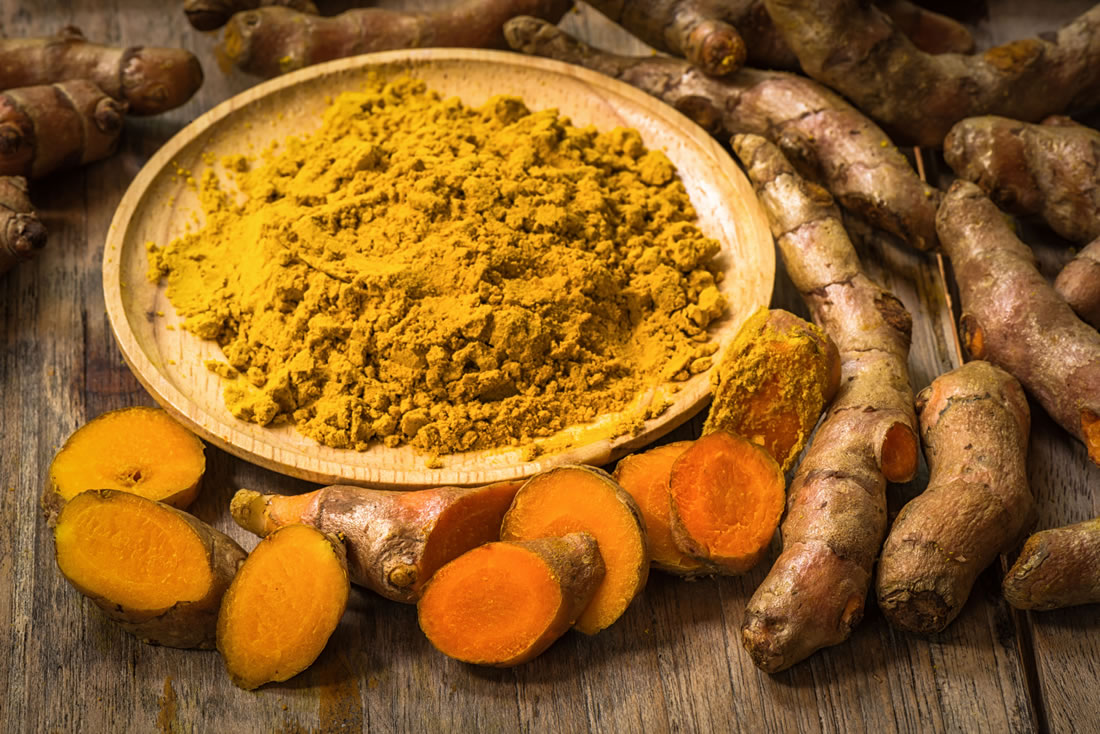Turmeric
Turmeric is an adaptogen plant (a healing plant) that provides a host of benefits, from reducing psychological stress to regulating the immune system to calming inflammation. Turmeric is also a powerful antioxidant.
Cooking with turmeric is better than taking a supplement. Your body can more easily absorb curcumin (the active substance in turmeric) when it’s cooked with fat. Start with 1 teaspoon dried turmeric or ⅛ teaspoon fresh. Another way to increase curcumin absorption is to add 3% black pepper.
The health benefits of turmeric include an improved ability to digest fats, reducing gas and bloating, decreased congestion, and improved skin conditions such as eczema, psoriasis, and acne. Turmeric has been used as a powerful anti-inflammatory in Chinese and Indian medicine for millennia.
Turmeric contains more than 300 naturally occurring components including beta-carotene, ascorbic acid (vitamin C), calcium, flavonoids, fiber, iron, niacin, potassium, zinc and other nutrients. But the chemical in turmeric linked to its most highly touted health effects is curcumin. High doses of turmeric can lower blood sugar or blood pressure.

